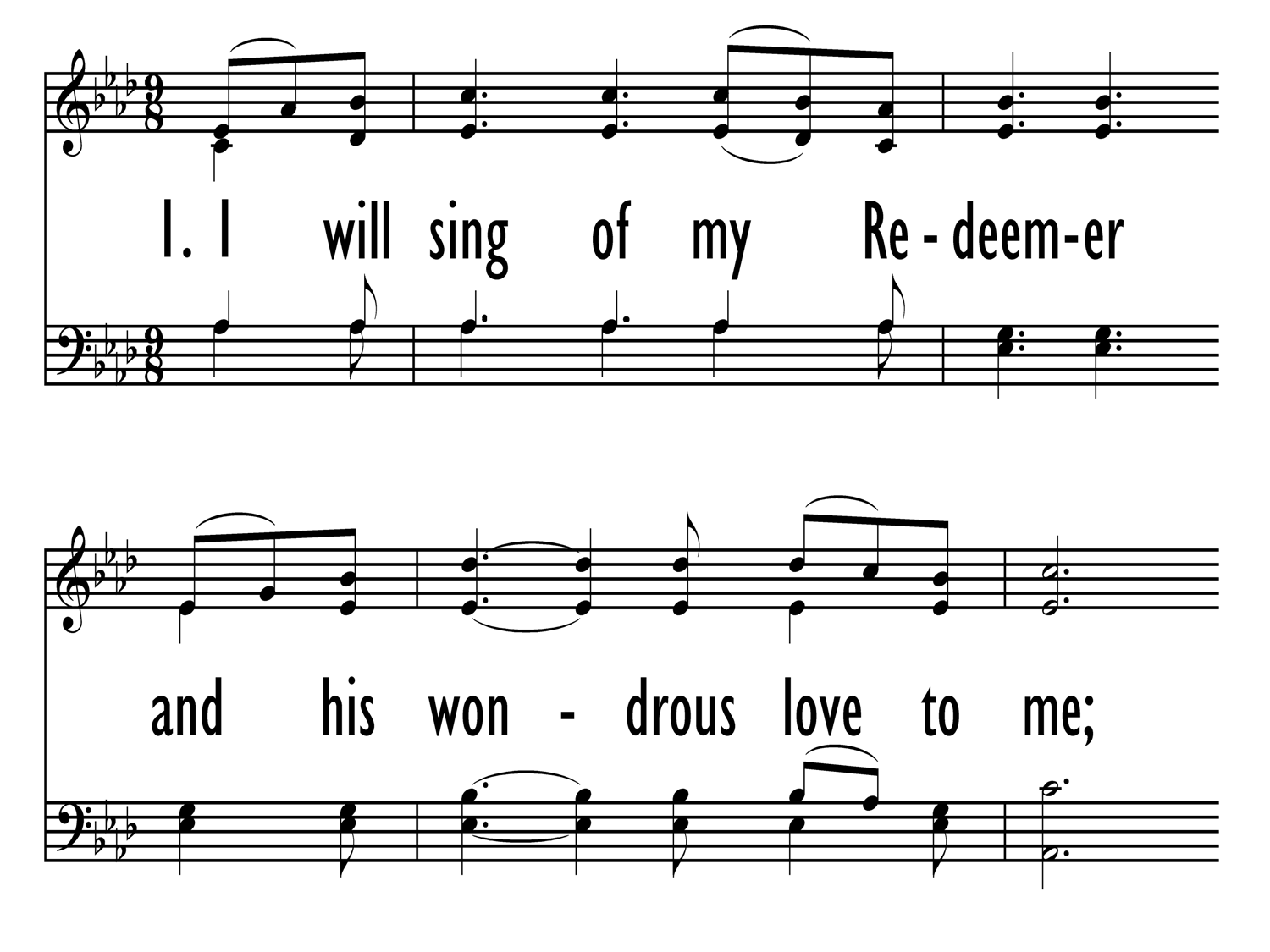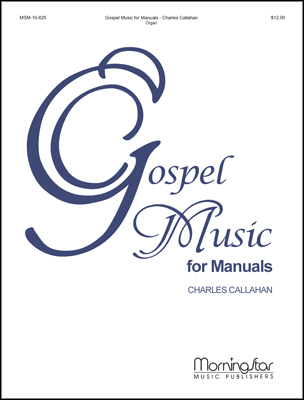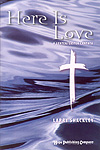- |
User Links
I Will Sing of My Redeemer
Hymn Information
- First Line
- I will sing of my Redeemer
- Author
- Philip P. Bliss (1878)
- Tune Name
- MY REDEEMER
- Composer
- James McGranahan, 1840-1907 (1956 rev.)
- Topic
- Jesus Christ: Blood of · Jesus Christ: Confidence in · Jesus Christ: Redeemer · Music and Singing · Praise of Christ · Testimony/Witness · Elements of Worship: Praise and Adoration
Copyright Information
- Text Copyright
- Public Domain
- Tune Copyright
- Public Domain
- Reprint/Projection Information
- Words and Music: The Words and Music are in the Public Domain; you do not need permission to project or reprint the Words and Music.
Full Text
Scripture References
Further Reflections on Scripture References
The text is a fine statement in hymn form of Christian teachings on the saving work of Christ, whose atoning death "sealed my pardon, paid the debt, and made me free." The Psalter Hymnal Revision Committee reordered original text into three stanzas to fit the tune HYFRYDOL; the original refrain appears in stanzas 1 and 3.
Bert Polman, Psalter Hymnal Handbook
Confessions and Statements of Faith References
Further Reflections on Confessions and Statements of Faith References
The best-loved expressions of praise for God’s care-taking work of his children comes from the familiar words of Heidelberg Catechism, Lord’s Day 1, Question and Answer 1: “My only comfort in life and death [is] that I am not my own, but belong—body and soul, in life and in death—to my faithful Savior, Jesus Christ. He has fully paid for all my sins with his precious blood, and has set me free from the tyranny of the devil...Because I belong to him, Christ by his Holy Spirit, assures me of eternal life and makes we wholeheartedly willing and ready from now on to live for him.”
This great truth is explained more completely by Belgic Confession, Article 20. God has given his Son to die for us “…by a most perfect love, and raising him to life for our justification, in order that by him, we might have immortality and eternal life.” And in Article 21, “…He endured all this for the forgiveness of our sins.” For this redemptive work we give praise and adoration.
I Will Sing of My Redeemer
Tune Information
- Name
- MY REDEEMER
- Key
- A♭ Major
- Meter
- 8.7.8.7 refrain 8.7.8.7


 My Starred Hymns
My Starred Hymns





